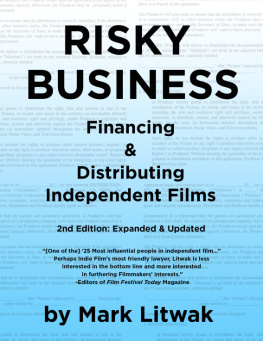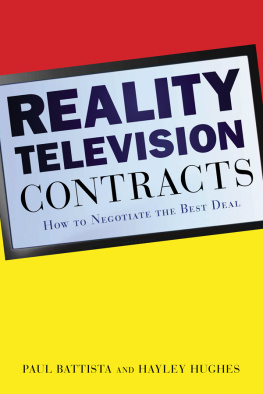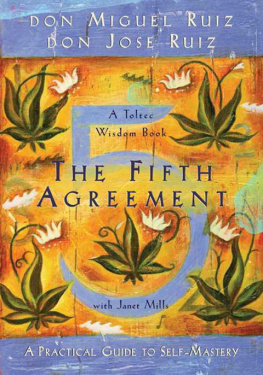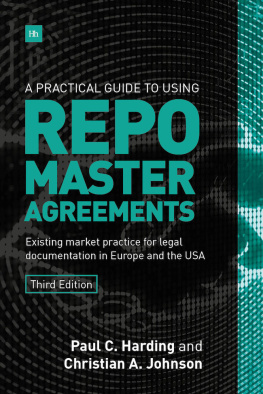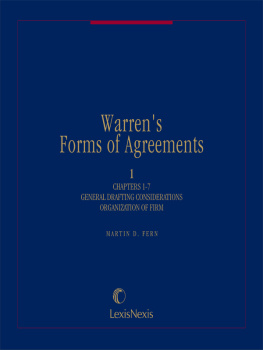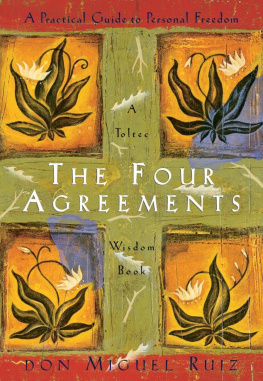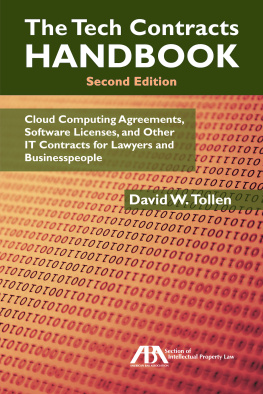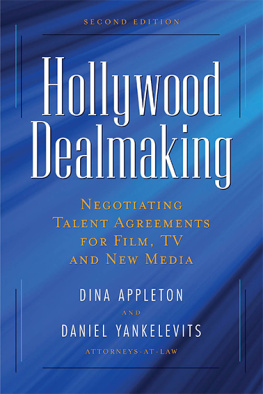MEDIA PRODUCTION AGREEMENTS
Media Production Agreements is an invaluable reference tool for film, television and video producers and has been written specifically for all those involved in the media industry. Providing legal information and sound advice on the structuring of deals and negotiated agreements, this authoritative guide identifies potential pitfalls in the drafting and arrangement of contracts and proposals.
Media Production Agreements contains legal agreements which independent producers, writers and all those involved in the film and television industry are faced with at the outset of a project. Typical agreements and sample contracts are presented in the text and practical explanatory notes provide clarification, caveats and advice.
Philip Alberstat is an entertainment lawyer with the London law firm of Edmonds Bowen and Company. His wide experience of the film and television industry includes working as a lawyer on films such as Crimetime, Backbeat, The Sheltering Sky, Naked Lunch and Patriot Games. He is also an expert in the area of international co-productions and media finance for both the feature film and television industries.
MEDIA PRODUCTION AGREEMENTS
A users guide for film and programme makers
Philip Alberstat
First published 1996
by Routledge
2 Park Square, Milton Park, Abingdon, Oxon, 0X14 4RN
Simultaneously published in the USA and Canada
by Routledge
270 Madison Ave, New York NY 10016
Transferred to Digital Printing 2006
1996 Philip Alberstat
All rights reserved. No part of this book may be reprinted or reproduced or utilized in any form or by any electronic, mechanical, or other means, now known or hereafter invented, including photocopying and recording, or in any information storage or retrieval system, without permission in writing from the publishers.
British Library Cataloguing in Publication Data
A catalogue record for this book is available from the British Library
Library of Congress Cataloging in Publication Data
Alberstat, Philip
Media production agreements / Philip Alberstat.
p.cm.
Includes bibliographical references and index.
1. Motion picturesLaw and legislationGreat Britain. 2. TelevisionLaw and legislationGreat Britain. 3. ContractsGreat Britain. 4. Motion picturesProduction and direction. 5. TelevisionProduction and direction. I. Title.
KD3730.A94 1996
343.410994dc20
[344.103994]966431
CIP
ISBN 0415136687
CONTENTS
The aim of this book is to make individuals aware of the various legal issues associated with film and television production. The book contains legal agreements which independent producers, writers and other individuals involved in the film and television industry are faced with during the course of setting up a film or television production.
The agreements which are contained in the book cover a wide range of materials, including the deals that a producer must make at the outset of a project to acquire source rights through to production and co-production and distribution arrangements for the finished product.
The agreements in the book have been annotated and offer guidelines on how deals are structured. The annotated agreements provide specific explanations for provisions contained within them, identifying potential pitfalls faced by producers as well as giving general advice.
These agreements should be used as a guide in helping users understand various contractual matters and in what context they should be used. The agreements do not offer specific legal advice and producers and others who use these contracts should be aware that in the commercial world all contracts and agreements are different. Specific legal advice should always be obtained where uncertainty exists or during a complicated transaction.
This book is not a substitute for an experienced media lawyer. Although lawyers are expensive and most producers would rather spend monies towards their production than on legal costs, producers should be aware that spending money on an experienced media lawyer may, in the long term, save the producer money.
This book has been primarily written for producers of films and television programmes. However, throughout the text reference is made to directors, writers and other individuals involved in the production process. The term Producer is used to describe both film and television programme makers. Users of the various legal agreements should note that many of the agreements can be used for both film and television production since many of the concepts which are appropriate for feature films are also applicable to television. The agreements tend to focus more on film production although many of the annotated notes will make specific reference to television productions.
Although the book concentrates on English law, the business of producing films and television programmes is an international industry and therefore many of the agreements in the book can be utilized both in the UK and abroad. looks at an Option and Literary Purchase Agreement, a hybrid agreement which incorporates many provisions found in American agreements. The acquisition of rights is an international business and therefore this was the reasoning behind creating an agreement which encompasses provisions applicable to various jurisdictions.
It is also important to consider the effect of the European Union on the international production industries. Various directives which address issues such as copyright, lending rights and moral rights have a direct impact on the legal agreements contained in this book. The book does not intend to give a full explanation of these issues but to give a broad view of them and to explain their effects in the context of film and television production. There are many specialized legal textbooks which directly address the European Union laws and directives facing film and television programme makers.
Users of this book should try and obtain information from the various organizations listed in . Unfortunately, many of the organizations listed in that Appendix would not let the author reproduce their various agreements in this book.
The author would like to thank all those people who helped make this book possible; and especially Simon Bowen, Paula Gibbs, Mark Litwak, Carol Hays, Miguel Laheyjos, Vivien James and Rebecca Barden.
The comments of the author reflect the position of the law as at 31 July 1995. It should be noted that the law is subject to change and therefore specialized legal advice should always be obtained.
Film and television producers rely upon many sources of material for their films and programmes. This chapter deals with source works which are already in existence and which will form the underlying basis for a film or programme. They may be in the form of a published book, a book still in manuscript form, a script, a treatment or a combination of the above materials.
The cost of making films and television programmes is sometimes prohibitive. Instead of paying large acquisition prices up front it is customary for producers to seek an option on a source work for a sum usually around 10 per cent of the eventual purchase price.
An option is an agreement with the rights owner where, in return for payment, the rights owner grants to the producer for a limited period of time the exclusive opportunity to acquire certain rights in the source work for a specified price. The benefit of an option is that it is less expensive for the producer to take out an option than to buy the rights immediately outright. From the perspective of the rights owner, if the producer does not exercise the option then the rights owner will be able to sell or re-option these rights to someone else.


